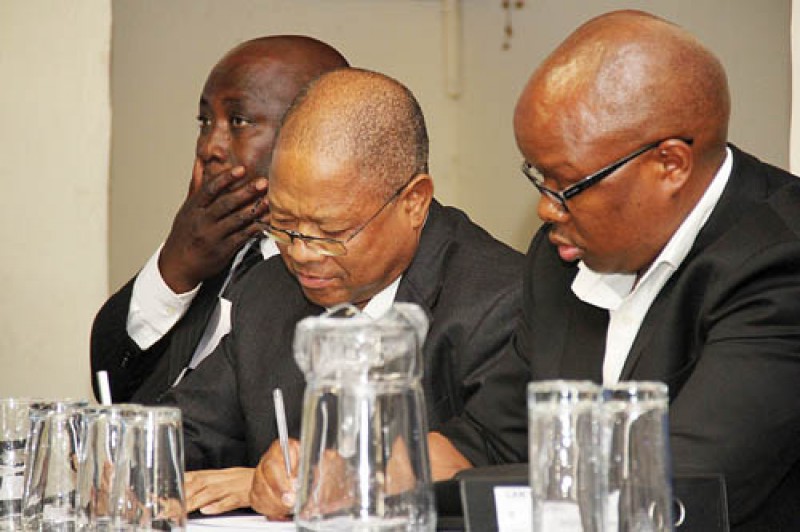The President can be sued � LSB
Bame Piet | Thursday March 26, 2015 18:04


Rantao, who is leading a team of lawyers representing the Law Society of Botswana (LSB) in challenging a decision by President Ian Khama to reject Omphemetse Motumise’s appointment to the bench of the High Court, told a press briefing that the President is not immune to prosecution.
In the case against the President, set for mid-April, the LSB will also cite the Judicial Services Commission (JSC) as the Respondent, and any other person who may be appointed as acting judge.
On Tuesday, the JSC recommended that Dr Zain Kebonang be appointed acting judge pending the Motumise case. The attorneys immediately responded with a notice to challenge that.
Rantao explained that the President could be sued if his actions are in contravention with the Constitution of Botswana. “It is wrong to believe that the President cannot be sued whilst still in office. What Section 41 is saying is that he cannot be sued for acting in his private capacity, but when he is acting in his official capacity, he can be sued,” said Rantao.
Rantao said the Gomolemo Motswaledi case, which gave rise to the belief that a sitting president is immune to litigation, was different in that the applicant was challenging the President’s decision on a party matter, the Botswana Democratic Party (BDP). He said even in that case, it was flawed to believe that he could not be sued because the BDP is a public institution.
Rantao stated that the LSB recently took Khama to court demanding that he remove one of its members from the Intelligence Committee, which he did.
“He conceded the defeat, and he even paid the costs,” said Rantao.
Prominent attorney Dick Bayford, who together with Kgalalelo Monthe (deputy chairperson of LSB) and other committee members jointly addressed the briefing, noted that the upcoming case was important for the credibility of the judiciary and the constitutional setup of the country, as well as the independence of the three arms of government – judiciary, legislature and executive.
He said that the President’s gesture, to reject Motumise’s appointment as Judge, seriously compromised the integrity and independence of the judiciary, and has potential to destroy the confidence of the public on the institution. He stated that the High Court has powers to preside over this matter, as it is the only resort to settle differences such as these.
The lawyers were confident that the outcome of the case, whether immediately, or a year from today, will set a precedent for future cases.
They were adamant that the President acted in contravention of the Constitution, which clearly states that he should act in accordance with the recommendations of the JSC on the appointment of judges. They stated that the Westminster, and Commonwealth system is that the President ought to act on the decisions of the JSC. “Even in the UK, the Queen rubberstamps the Prime Minister’s decision. That’s how it is in other jurisdictions similar to ours,” said Bayford.
